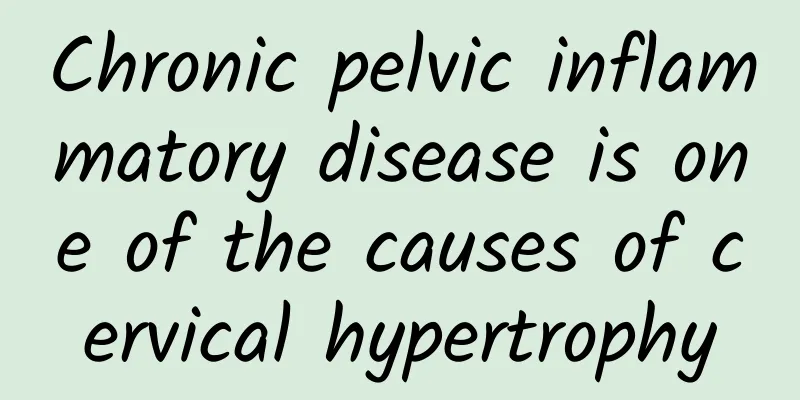Gynecological diseases that are not treated for a long time may turn into cancer

|
Long-term untreated gynecological diseases may increase the risk of cancer, and timely treatment is required to reduce the incidence of cancer. The progression of the disease can be effectively controlled through drug treatment, surgical treatment, regular examinations and lifestyle intervention. 1. Drug treatment is the basic treatment for gynecological diseases, including antibiotics, hormone drugs and anti-inflammatory drugs. Infectious gynecological diseases such as vaginitis and cervicitis can be controlled by antibiotics; diseases with abnormal hormone levels such as polycystic ovary syndrome can use hormone regulating drugs; chronic inflammation such as endometriosis can use anti-inflammatory drugs to relieve symptoms. Follow the doctor's instructions to use medication in a standardized manner to avoid recurrence or aggravation of the disease. 2. Surgical treatment is suitable for gynecological diseases that are serious or ineffective with drug treatment. Common surgical procedures include myomectomy, endometrial ablation and hysterectomy. Myomectomy is suitable for patients with large fibroids or severe symptoms; endometrial ablation is used for patients with abnormal uterine bleeding; hysterectomy is for patients with malignant uterine lesions or severe functional abnormalities. Surgery should be evaluated and selected under the guidance of professional doctors. 3. Regular check-ups are important means of preventing gynecological diseases from becoming cancerous, including cervical cytology, HPV testing, and B-ultrasound examinations. Cervical cytology can screen for cervical precancerous lesions; HPV testing helps detect high-risk HPV infections; and B-ultrasound examinations can monitor lesions in organs such as the uterus and ovaries. It is recommended that women undergo a gynecological physical examination once a year for early detection and early treatment. 4. Lifestyle intervention plays an auxiliary role in the prevention and recovery of gynecological diseases, and can be started from three aspects: diet, exercise and mental health. In terms of diet, eat more foods rich in vitamins C and E and dietary fiber, such as fruits, vegetables and whole grains; in terms of exercise, maintain moderate aerobic exercise such as walking and yoga to enhance immunity; psychologically, learn to relieve stress and avoid the impact of emotional fluctuations on the endocrine system. Long-term untreated gynecological diseases may indeed increase the risk of cancer, but timely and standardized treatment, regular examinations and a healthy lifestyle can effectively control the progression of the disease and prevent cancer. Women should raise their health awareness, pay attention to body signals, and achieve early detection, early diagnosis and early treatment to protect their own health. |
<<: What are the taboos of abortion?
Recommend
What is the main care for vulvar leukoplakia
Among gynecological diseases, I believe that some...
Jiang Gui Liang Jiang Congee is suitable for patients with dysmenorrhea caused by cold stagnation and qi stagnation
Cold stagnation and qi stagnation is a common typ...
What are the classifications of physiological ovarian cysts?
What are the classifications of physiological ova...
Women need to take precautions against pelvic inflammatory disease
Pelvic inflammatory disease can affect women'...
Controlling sexual life is one of the ways to prevent cervical hypertrophy
If cervical hypertrophy is not treated thoroughly...
Get rid of the carrot legs! Three-step all-round leg slimming
[Key points]: How to lose weight with carrot legs...
What are the dietary taboos for patients with vulvar leukoplakia?
What are the dietary taboos for patients with vul...
What tests should be done before abortion?
What kind of examinations should be done before a...
What should patients with cervicitis do in summer? Introducing self-care methods for patients with cervicitis
The weather is hot in summer, and many gynecologi...
How to relieve the symptoms of dysmenorrhea
Nowadays, more and more women suffer from dysmeno...
The harm of cervical erosion should not be underestimated
Cervical erosion is a very common gynecological d...
What are the common hazards of pelvic peritonitis
Pelvic peritonitis is relatively common in life a...
What are the symptoms of menopausal irregular menstruation? How to regulate menopausal irregular menstruation for women?
Menopause Irregular Menstruation Menopause is a s...
Is endometrial thickening difficult to cure?
Surgical treatment is currently the main method f...
How much is the cost of uterine fibroid surgery? What is the common knowledge about uterine fibroid surgery?
Experts point out that uterine fibroid surgery sh...









